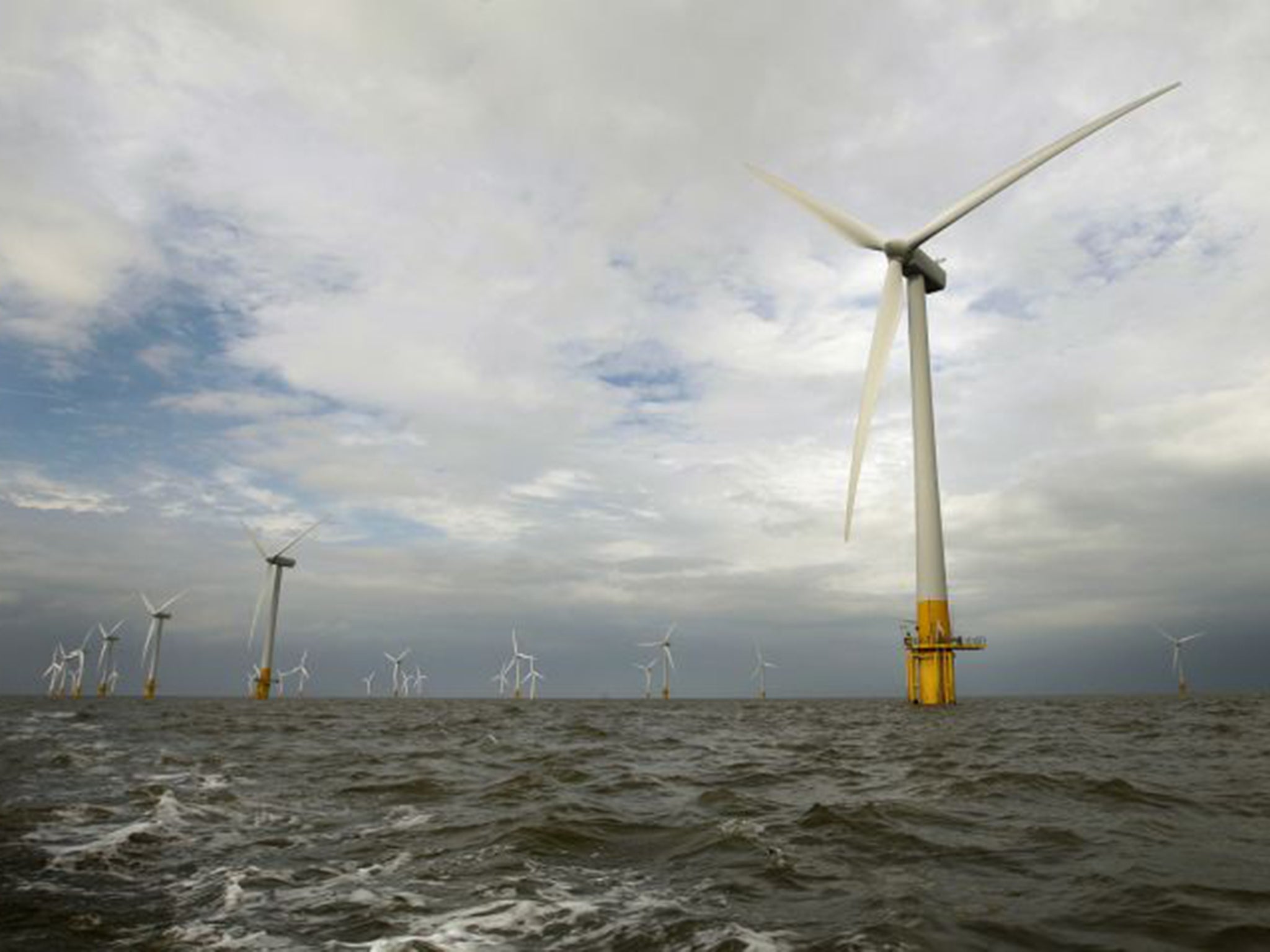Nature Studies: Why Cameron was right to pull out of the Navitus Bay wind farm
Science has shown us that nature really does have a provable, measurable effect on how our bodies heal themselves. We can't trash its landscapes without an effect

Your support helps us to tell the story
From reproductive rights to climate change to Big Tech, The Independent is on the ground when the story is developing. Whether it's investigating the financials of Elon Musk's pro-Trump PAC or producing our latest documentary, 'The A Word', which shines a light on the American women fighting for reproductive rights, we know how important it is to parse out the facts from the messaging.
At such a critical moment in US history, we need reporters on the ground. Your donation allows us to keep sending journalists to speak to both sides of the story.
The Independent is trusted by Americans across the entire political spectrum. And unlike many other quality news outlets, we choose not to lock Americans out of our reporting and analysis with paywalls. We believe quality journalism should be available to everyone, paid for by those who can afford it.
Your support makes all the difference.In April 1984, the academic journal Science published a paper with one of those titles which make people all around the world sit up and take notice. It said: “View through a window may influence recovery from surgery”.
The author was an American architect named Roger Ulrich who specialised in hospital design, and he had stumbled upon something unusual: over nine years, patients in a hospital in Pennsylvania who underwent gallbladder surgery made substantially better and quicker recoveries if they had a natural view from their beds.
Some of the windows of the hospital wing looked out onto a group of trees, and some onto a brown brick wall; and those patients fortunate enough to have the tree view, Ulrich found, recovered faster, spent less time in hospital, had better evaluations from nurses, required fewer painkillers and experienced fewer post-operative complications than those who only had the wall to look at. You couldn’t ignore it, it was all there in the data.
The implication was astonishing: contact with nature, even if only visual, clearly had a real, empirical effect on people’s physical and mental states. The natural world is good for us, it implied, and worth preserving for that reason; and since then, research on the practical health benefits of involvement with nature has expanded enormously.
Countless people had long thought this might be the case, as a gut feeling. For example, behind the creation of Britain’s natural parks by the post-war Labour government was the simple assumption that nature was beneficial, that access to wild and unspoiled landscapes would be of great help to ordinary working people – not least those living in industrial towns. But it remained an assumption, which could always be dismissed by a cynic as an airy-fairy fantasy with no roots in the real world.The significance of Ulrich’s discovery was it revealed, for the first time, that the benefits of nature could actually be measured and be shown to be empirically true.
I was put in mind of it at the weekend by a controversy – the angry arguments over the rejection by the Government of plans for a giant offshore windfarm, known as Navitus Bay.
The £3bn project proposed the installation of up to 121 wind turbines, each 650ft high, about a dozen miles off the historic Jurassic Coast of Dorset and East Devon. The plans had excited strong opposition locally from people who felt the development would destroy their coastline’s wonderful natural setting.
The independent planning inspectorate agreed with them, and last Friday the Government agreed with the planners’ recommendation and threw out the plan for Navitus Bay. But what made the decision controversial was the policy context, because it is increasingly clear that Cameron’s administration has a damaging ideological hostility to renewable energy in all its forms – the renewable energy which will be vital if we are to meet our climate-change targets: since taking office in May it has already halted subsidies for onshore wind and solar power and energy-efficient homes.
The cancellation of Navitus Bay was seen in this light by Greenpeace, and Friends of the Earth, and the Green Party, and was fiercely criticised by them. But personally, while I strongly support renewable energy as essential, I feel that the cancellation of Navitus Bay was right, as it was simply in the wrong place. Its forest of huge turbines would have industrialised one of the most noble marine vistas in Britain and transformed a natural setting into a man-made one.
These things matter enormously to people, but they are sometimes hard to argue for, because they are intangible. The benefits of Navitus Bay were tangible, measurable and loudly proclaimed: its turbines with their 970 megawatt capacity could have produced enough electricity to power 700,000 homes.
The benefits to us of a continuing, unspoiled, wild and natural view from the inspiring Dorset coastline, on the other hand, cannot (at present, anyway) be measured in the same mathematical way. Yet that certainly does not mean that they are not real. They are only too real; and Roger Ulrich, stumbling 30 years ago upon an example of nature’s value to us which for once could actually be measured, showed beyond doubt that the natural world has a mysterious, enormous power to heal us and to help us which cannot be dismissed.
And every time we trash it, we destroy something linked to the deepest parts of ourselves.
Join our commenting forum
Join thought-provoking conversations, follow other Independent readers and see their replies
Comments